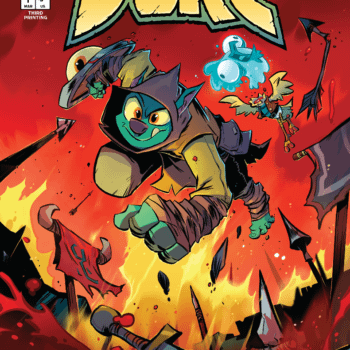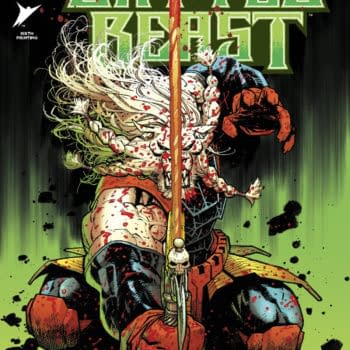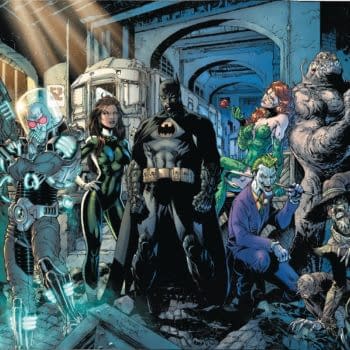Posted in: Comics | Tagged: Comics, david liss, dynamite, entertainment, Moriarty Lives, sherlock holmes, Writer's Commentary
Writer's Commentary – Sherlock Holmes: Moriarty Lives #4 By David Liss
Yesterday we ran a piece where novelist David Liss was interviewed by fellow writer Troy Brownfield about the series Sherlock Holmes: Moriarty Lives from Dynamite. Now Liss is back with a writer's commentary for the recently released fourth and penultimate issue of the series.

Page 2. There's a bit of an inside joke on this page between me and maybe six other people on the planet. When I was writing my novel, The Twelfth Enchantment, I did a lot of research on the history of magical practices in Europe. I read not only a lot of secondary sources but primary treatises on magic as well, including several by Agrippa. I figured I should get some mileage out of it.

Pages 4-5 One of the real pleasures in this kind of a story for me, as a reader, is the lack of trust between characters, and the mystery of never knowing which side anyone is on. From the beginning, I knew I wanted there to be a lack of trust between Udo and Moriarty. It's been building for a while, and now Udo's suspicions are paid off. The irony, of course, is that Udo is only top of the situation because of the training he's received from Moriarty.




Pages 11-13 These pages are Udo's big jump into adulthood. He has to do some hard things, like fight off much older and larger opponents, and to make some hard moral choices about what goals he wants to pursue.
Page 14. Not that it matters. Now we begin to wonder what sick experiments the baron is going to perform on Udo.
Page 15. More plot movement here. The people Moriarty has been depending on are jumping ship. Things are beginning to unravel. I wanted the issue to start to take on that urgent feeling of everything falling apart – something I think works nicely in a penultimate issue.
Pages 16-17 I wanted the feeling of things spiraling out of control to really pick up here. Moriarty seems to be in too deep, and his cover is dragging him down. Meanwhile, he knows Udo is in trouble. We understand that he's going to have to make some tough decisions. More importantly, they are decisions that are going to reveal, at last, who this guy is. His own moral positions have been uncertain since the beginning of the story, and I wanted make the reader really question just how bad, or good, Moriarty might actually be.
Page 18. This accelerates again. Karl, his henchman, is gone, which means Moriarty is going to have to deal with everything himself.
Page 19. I love this kind of cliffhanger. What will the character do? It's so much better than the cliffhanger that asks if the protagonist will survive. If he's got his name on the cover of the issue, then he probably will. Cliffhangers that leave you wondering what happens next, however, I think are the best way to leave a story with a lot of energy going into then nest issue.
Page 20. Udo does not have his name on the cover, and we've already seen, many times, that Bombastus is sick enough to do almost anything. Hopefully this too will get the reader wondering.
For more on Sherlock Holmes: Moriarty Lives, click here.














